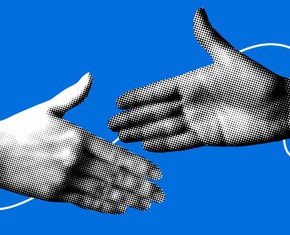The views expressed in our content reflect individual perspectives and do not represent the authoritative views of the Baha'i Faith.
If we aspire to manifest the equality of women and men, we must learn to account for all the work we do, not just the kind that draws a paycheck.
If someone asked me to do a huge amount of valuable work without any pay, I’d have some questions. What does it accomplish? What’s in it for me? If it’s so valuable why can’t I be paid? These are valid questions to ask. It seems outrageous to work without pay. But in many places, the suggestion would be much more shocking for a man than for a woman.
That’s because women know better than to expect payment for everything important they do. From time immemorial they’ve done a great deal of essential work that never draws a paycheck: cooking, cleaning, childcare, care for elders, and all the delicate work of holding family and community relationships in harmony. While women have now entered the paid workforce in large numbers, the burden of unpaid housework still falls disproportionately on their shoulders. If the saying is true that women hold up half the sky, it’s clearly the half that rarely pays a dime. If that half disintegrated into dust, the rest of the sky would collapse with it almost instantaneously.
This is one reason why it’s so important to heed the wisdom of the Baha’i teachings on gender equality:
… the world of humanity possesses two wings: man and woman. If one wing remains incapable and defective, it will restrict the power of the other, and full flight will be impossible. Therefore, the completeness and perfection of the human world are dependent upon the equal development of these two wings. – Abdu’l-Baha, The Promulgation of Universal Peace, p. 318.
There’s more to this quote than the importance of formal education and entering work worlds long dominated by men. It also has implications for how we perceive the categories of tasks long associated with each gender. We need to acknowledge how work inside the home and work outside of it are mutually dependent on each other. If we only value one, then the other will suffer. The bird will fly poorly, if at all. There is a oneness to the world of humanity, and the portion associated with men cannot be cared for to the exclusion of that which is traditionally associated with women.
In order to arrive at a more holistic understanding of society, we must examine the role of economics in shaping our priorities. We can’t forget that the male perspective is one of its fundamental assumptions. To champion the oneness of humanity we must learn to include perspectives that see the interconnectedness between all kinds of contributions to the upkeep and progress of society.
Traditional economic analysis can only account for something if it has a price—when a number is assigned to something and can be related mathematically to other things with prices. But how could one possibly put a price on something like carrying a pregnancy to term, or well-timed guidance for a child? It can’t, and it’s never had to. Traditionally, economics has only measured the work that men do outside of the house, work that involves trading goods and services for money. Nowadays women do a lot of that too—but that still leaves a lot unmeasured.
Experts can account for the work that women do for pay because it conforms to traditional conditions of measurement. They can see how each unit of labor produces quantifiable results and contributes to the bottom line of the employer. But once those women go home, the time and energy they put into unpaid tasks is off-books. The failure of men to equitably share the workload around the house creates a gendered imbalance plainly visible to women, but largely invisible to the methods institutions employ to understand economic activity.
Right now, we have no way to fully account for both kinds of labor. Disruptions within the paid economy can be moderated through adjustments in prices. As supply decreases or demand increases, prices rise. If supply increases or demand decreases then prices fall. But disruptions between the paid economy and the unpaid economy cannot be dealt with so simply. They require spiritual and cultural interventions that reorient basic human relationships around the principles of oneness, mutual help and interdependence. The Baha’i teachings give us an invaluable resource for developing practices and attitudes that move us in that direction.
While it may not be possible or desirable to quantify the value of women’s traditional work the way that we would a pair of shoes or a car repair, institutions can still arrive at a more holistic vision of work by lending more weight to the voices of women, who are much more accustomed than men to the experience of being torn between one world and the other. In particular, institutions need to take to heart what women say about the way work in one sphere affects work outcomes in the other.
When institutions account for women’s perspectives, practical solutions can emerge that address the incoherence between work and family life. The challenge for the paying sector of the economy is to learn to respect considerations that cannot be measured with money, and to also embrace remedies that might imply extra financial costs.
In order to teach the bird of humanity to fly well we must give measure to the priceless.
You May Also Like
Comments

















Similarly women entering the work force, this again is a mans domain, designed by men for men.
We will start to address real equality when whole systems are designed by women, and not the Curren crop ...of women who have been educated by a mans world, but by women who had had a feminine education and who can create a feminine work place, not necessarily separated from the home.
I still remember getting Master's degree in Counseling and never being able to look forward to making as much as a man in this field because it was in direct service to the neediest in our society.